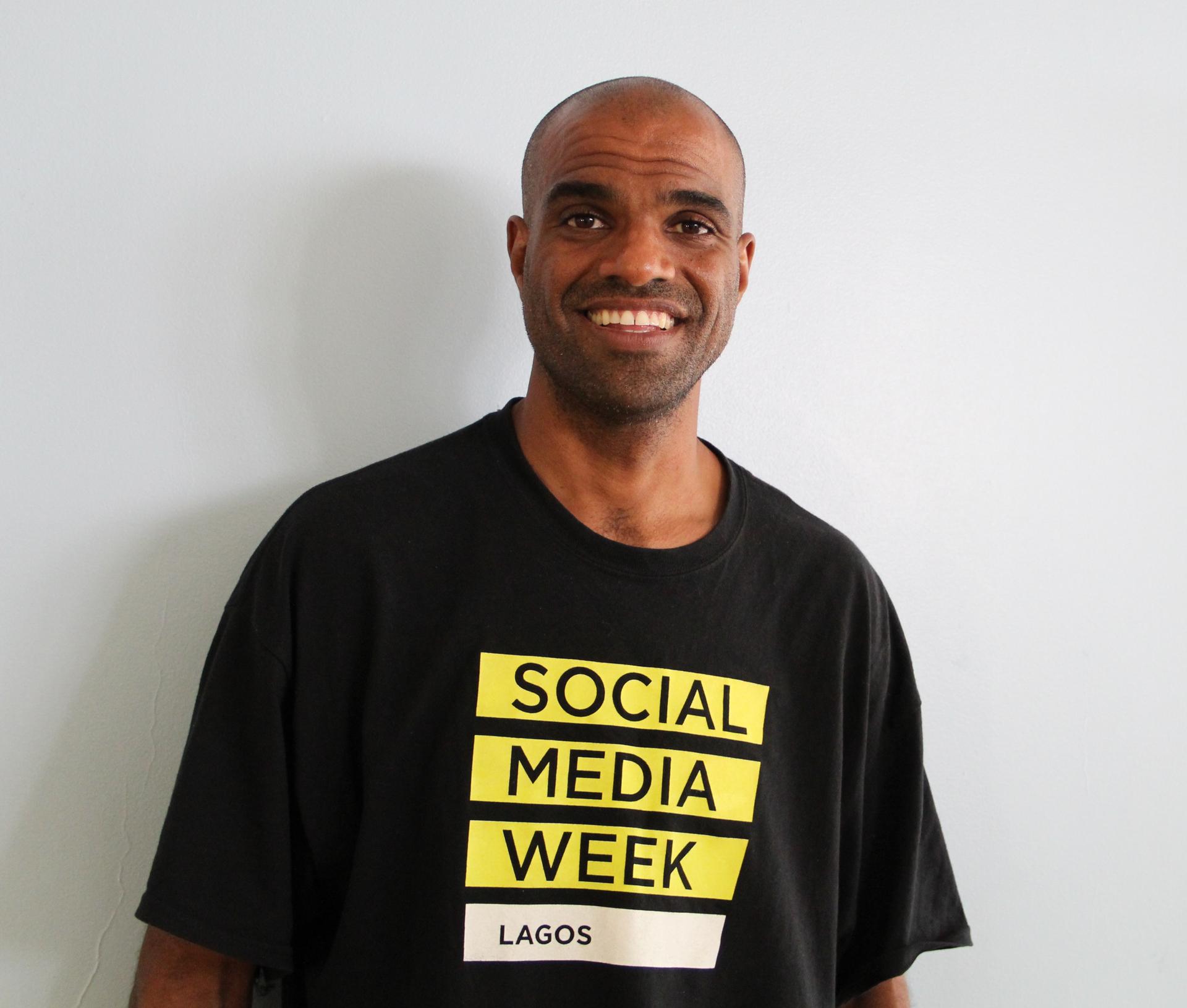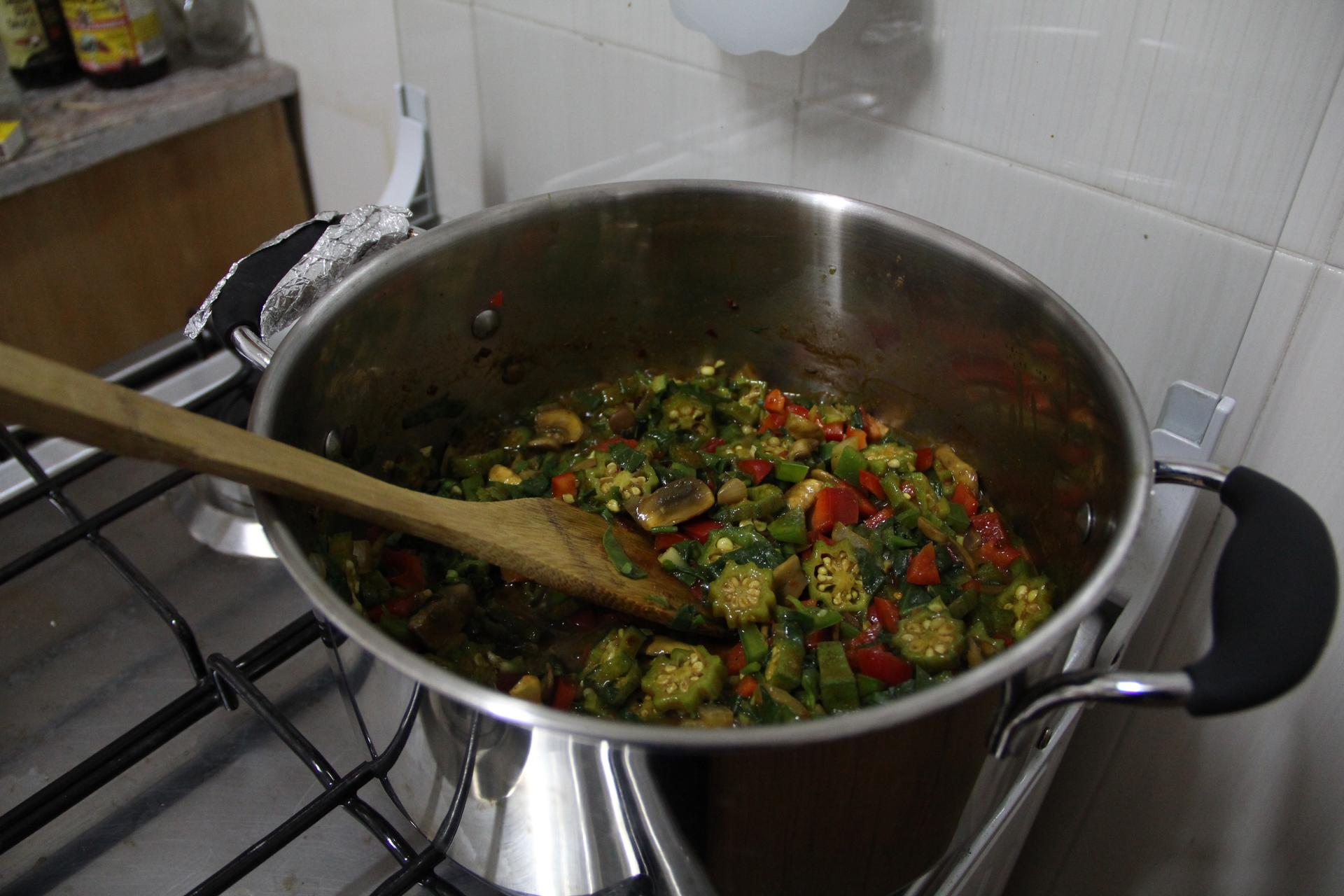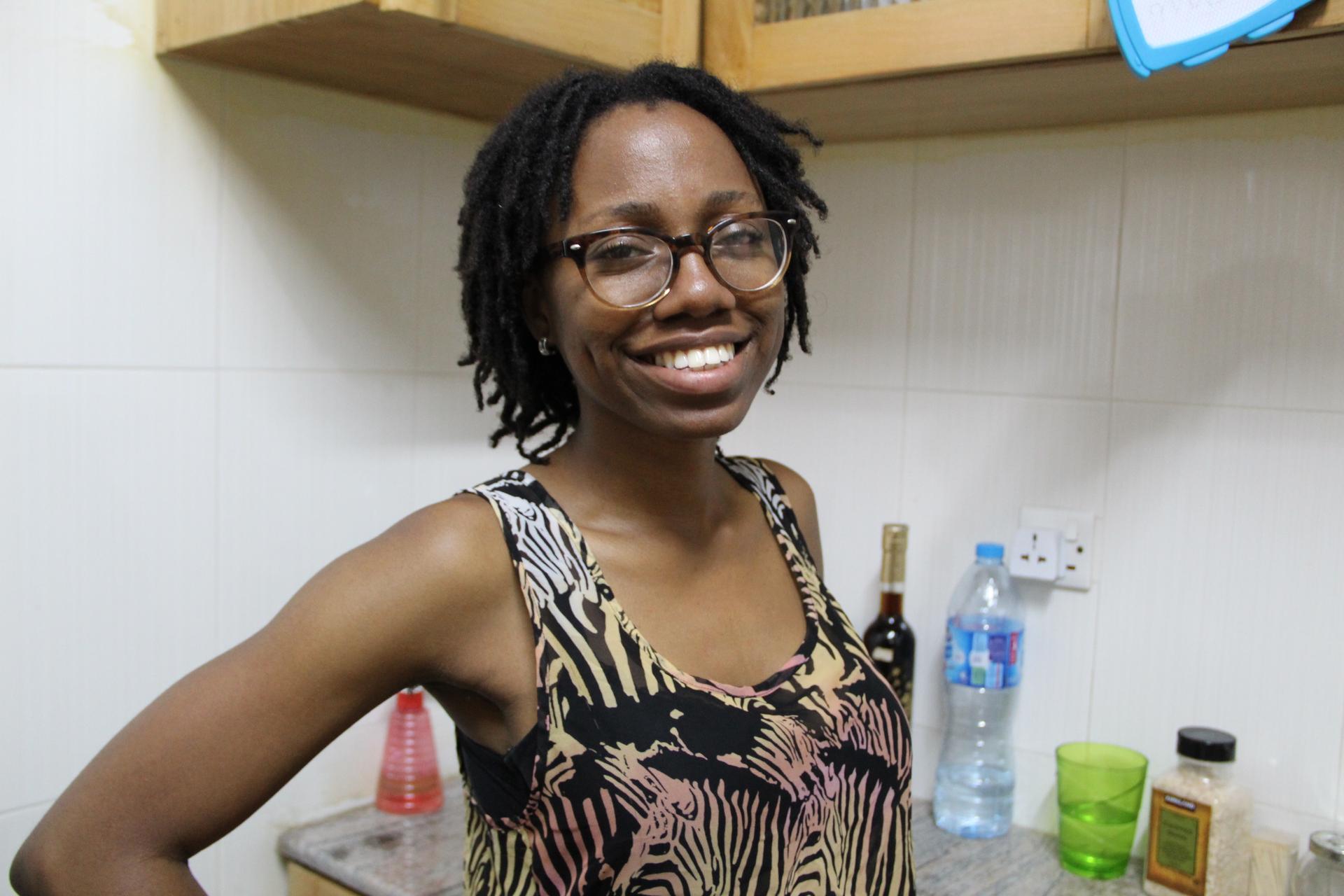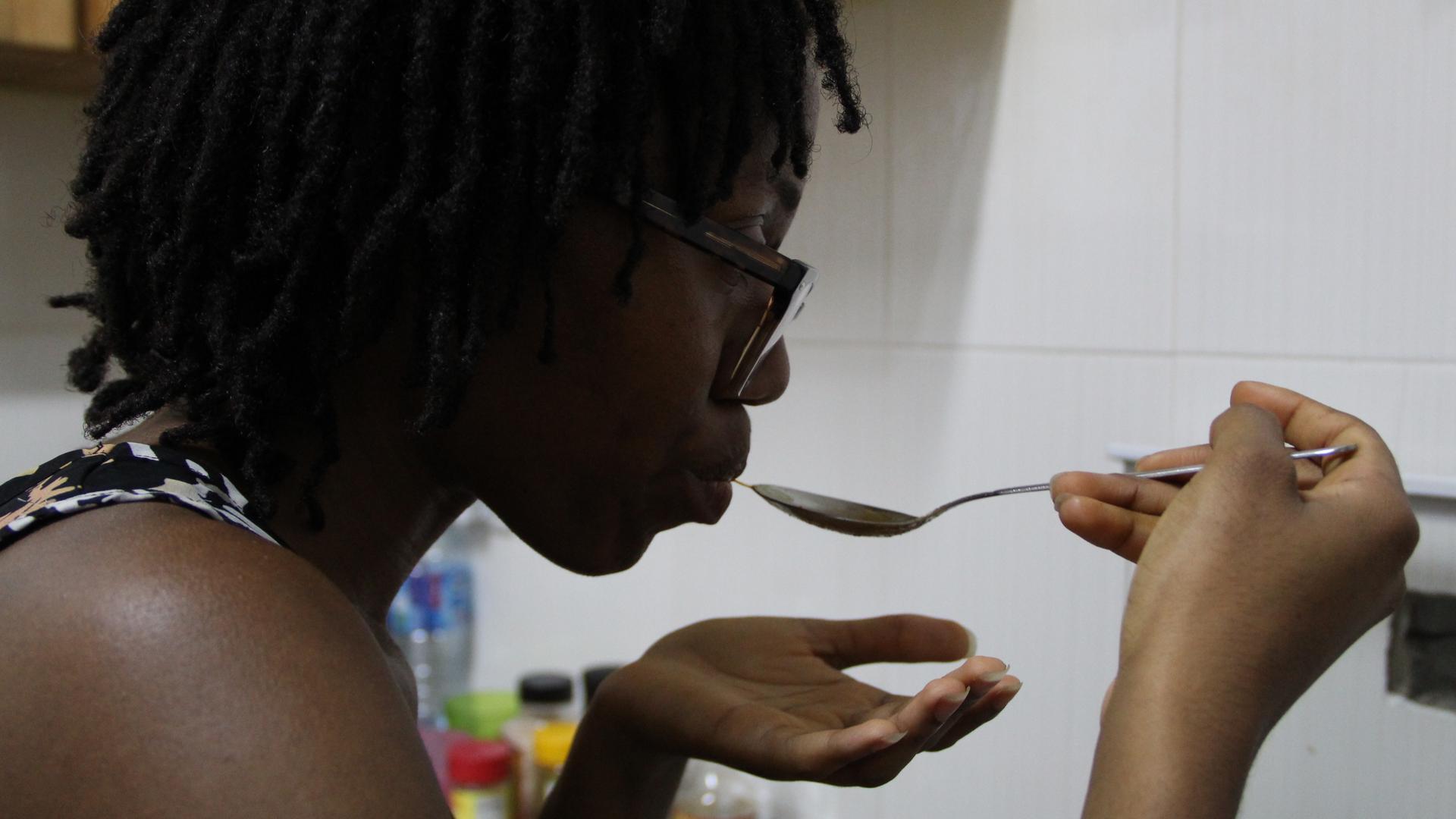Itua Iyoha runs a food blog and nutrition education platform called Eat Right Naija. She says she became a vegetarian as a healthy way to offset all the hours she spent sitting at a desk.
Veggie Victory — billed as Nigeria’s first vegetarian restaurant — is an open-air eatery tucked away in a small, gated park in central Lagos, Nigeria’s largest city. Unless you know what you’re looking for, it’s hard to find.
The restaurant’s three full-time employees spend their days concocting smoothies and barbequing tofu, but they are adamant that they do not follow a plant-based lifestyle themselves.
“No — we’re Nigerian!” they chorus.
That says it all. There’s a widely-held perception that the only vegetarians in Nigeria are either foreigners or Nigerians who have spent time abroad.
Related: For these vegans in the Palestinian territories, food is a form of protest
The owner of Veggie Victory, Hakeem Jimo, grew up in Germany, though he often visited family back in Nigeria. Jimo is vegan and he’s always loved Nigerian food. But as meat has become more available with the rise of mega-supermarkets, he says people are putting it on everything — even traditional dishes, like beans and plantains.
“Beans and plantains used to be a perfect vegan dish, but people started putting corned beef or crayfish in it. … For no reason! Because they just believe that it is fashion or it is good or it is prestige.”
“Beans and plantains used to be a perfect vegan dish, but people started putting corned beef or crayfish in it,” Jimo says. “For no reason! Because they just believe that it is fashion or it is good or it is prestige.”

Jimo says that, in Nigeria, meat represents wealth. People who can’t afford to eat meat all the time aspire to it. So, while Nigerians are trying to eat more meat, it is hard to imagine someone who would give up meat voluntarily.
A typical Nigerian meal is not complete without a chunk of meat on top.
“I always make fun,” he says. “Nigerians want to see some chunk on top of their rice. They just want to see one big chunk. Or one or two or three. That makes the meal complete.”
However, Jimo says people who eat at his restaurant accept a chunk of tofu or seitan in place of meat. And for the many Nigerians who can’t afford a restaurant meal, he’s working on marketing his own brand of vegetarian “chunks,” now available in supermarkets across Nigeria.
Jimo is quick to talk up the health benefits of a meatless diet and says most of his customers are looking for a healthier lifestyle. Others are vegetarian or vegan for religious reasons. There are quite a few religious groups in Nigeria, ranging from the Hari Krishna to the Seventh Day Adventists to the Brotherhood of the Cross and Star, who preach a plant-based diet.
However, there’s a third, more sobering reason that Jimo says some people are turning to a vegetarian lifestyle — meat-eating habits may be fueling internal conflict in Nigeria.
In the past few years, drought has led Fulani herdsmen — Nigeria’s traditional cattle farmers — to push south with their cattle in search of grazing land. This has sparked deadly clashes between herders and farmers over land and resources.
Since 2016, more than 3,600 people have been killed in such conflicts, according to Amnesty International. Jimo says it is affecting how people think about meat. Recently, he got a call from a pastor in a region affected by this conflict.
“Slowly, slowly, the connections are being made,” Jimo says.

‘Quote-unquote white people food’
Itua Iyoha grabs some fermented locust beans out of her freezer and pops them in the sizzling pan on her stovetop in Lagos. She’s using this traditional ingredient to make a tasty base for a batch of okra soup.
Iyoha, who runs a food blog and nutrition education platform called Eat Right Naija, says she became a vegetarian as a healthy way to offset all the hours she spent sitting at a desk. Then, she decided to go vegan after reading about the social and environmental impacts of eating meat.
“…when I started looking around online, a lot of the [vegan] recipes [didn’t] speak to my Nigerian upbringing and the variety of spices we have here.”
“But when I started looking around online, a lot of the [vegan] recipes [didn’t] speak to my Nigerian upbringing and the variety of spices we have here,” she says.

Iyoha started “veganizing” her favorite recipes and posting them online. As she did more research, she realized meat has not always been so central to the Nigerian diet. But some people have pushed back.
“People say things like, this is how white people eat and this is not how we eat in Nigeria, that kind of thing,” she says. “And I just let them know that, first of all, the recipes that I share are not quote-unquote white people food, they are Nigerian food, and then secondly, our traditional foods are very much plant-based.”
Ihoya says after she went vegan, the first big test was her family’s Christmas dinner. She made a roasted chickpea salad.
“But my dad had never had chickpeas before and he was like, what are these?” she says. “Are these chicken peas? They don’t look like chicken, they don’t taste like chicken. Why do you call them chicken peas?”
But she says that he started to like them. And now, he’ll sometimes call to say, “Guess what I’m eating? A salad.”
We want to hear your feedback so we can keep improving our website, theworld.org. Please fill out this quick survey and let us know your thoughts (your answers will be anonymous). Thanks for your time!
